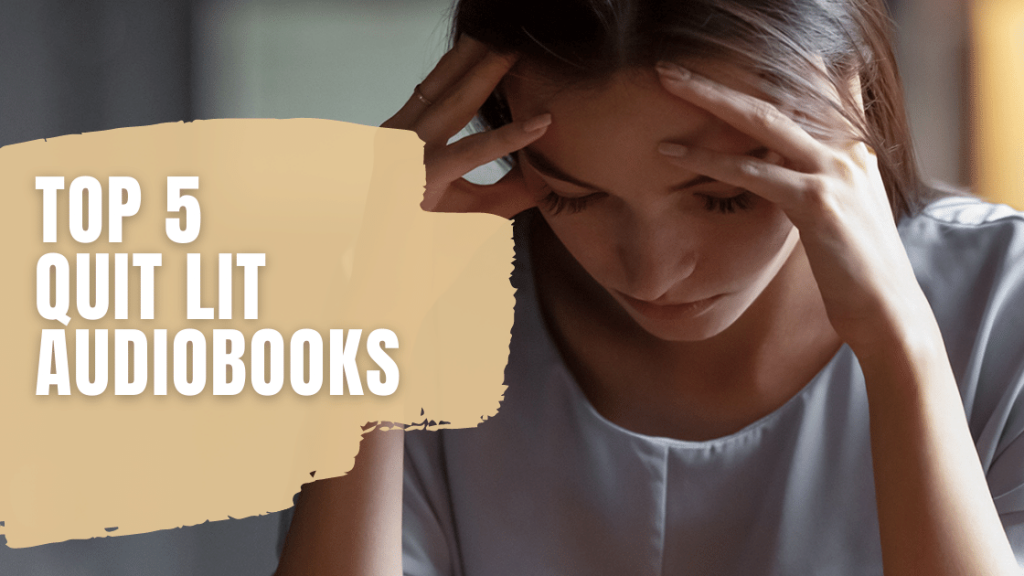
If you are looking to re-assess your drinking habits, listening to the experience of others is a great place to start. Bibliotherapy – a therapeutic approach to using books and other forms of literature alongside traditional therapies – has become an increasingly popular medium for self-improvement.
As someone who is now two years sober, equipping myself with knowledge via other people’s experiences through sobriety memoirs was an essential part of my road to recovery. It helped me to understand why it was I drank, re-affirmed my decision to stop, as well as made me feel less alone in my decision in doing so.
Listening to audiobooks helped me to get sober and continues to be an important part of my recovery today. Whether you’re looking to stop or are just sober curious, audiobooks are the perfect medium for stories like these. If you’re struggling, in withdrawal, or just really hungover – you can plug in and listen with minimal effort required.
In no particular order, here are five of my favorite “quit lit” audiobooks narrated by the authors which I found entertaining, engaging, and eye-opening on the topics of addiction, recovery, and the role which alcohol plays in society and our overall health.
The Unexpected Joy of Being Sober
By Catherine Gray
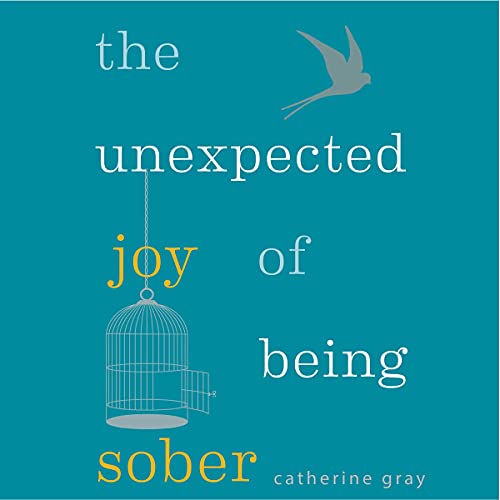
British author Catherine Gray’s first sobriety memoir The Unexpected Joy of Being Sober is so eye-opening and compelling that it’s easy to plow through it faster than a bottle of rosé. Many will find identification in the details of her drinking days, as well as the shame, guilt, and confusion which come with it. It is refreshing to hear someone who has been through this and managed to not only find a way out but a whole new way of life which sounds much better. In the early days of sobriety, it’s common to struggle with the notion that life without drinking would be boring, a myth that Catherine firmly puts to bed.
Catherine Gray’s second sobriety memoir, Sunshine Warm Sober follows the story of her sober life as well as the joy which she has found within it. Her audiobooks are relatable, enjoyable listens which come highly recommend to anyone looking for somewhere to start. Both are read by Catherine in her beautifully soothing British accent, which makes hearing about some of the harder days of her drinking much easier.
Glorious Rock Bottom
By Bryony Gordon
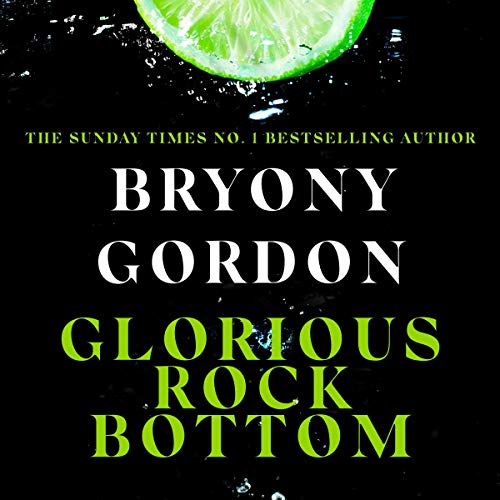
British writer and mental health advocate Bryony Gordon’s sobriety memoir opens with her coming round from a blackout with a man who is not her husband going down on her. In this sobriety memoir, Bryony confronts the shame and guilt of her drinking days with such honesty, that this compelling listen is near impossible to turn off. Bryony regularly hosts podcasts and live events, making her an excellent narrator. The way she describes the inner turmoil of her last days of drinking will be relatable for so many. She’s also brutally honest about her struggles with the combination of alcohol and cocaine – a lethal addictive duo that is rife, but we do not hear enough about it despite it commonly being done in secret in bar washrooms. Glorious Rock Bottom covers her journey into rehab and out into the world of recovery. It is as entertaining as it is informative and suitable for anyone – sober, sober curious, and current drinkers.
Recovery: Freedom from Our Addictions
By Russell Brand
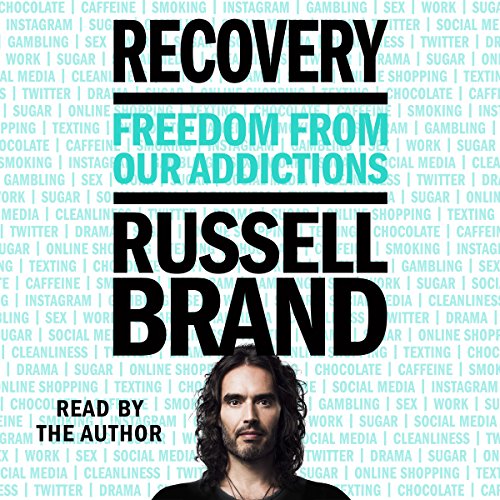
Recovery is the 12 Steps of Alcoholics Anonymous re-Branded into a digestible and understandable format, with each chapter detailing the work required by each of the 12 steps in layman’s terms and delivered by Russell himself. Many will recognize Russell’s eccentric British accent from his podcast Under The Skin as well as his live events. He says that this book is for anyone looking to “un-f*ck themselves” and can be applied to any addiction or vice – booze, shopping, sex, gambling, or drugs. He offers an approachable guide to traditional recovery for those who may be intimidated by the God-talk or church basements associated with AA. Some argue that this is controversial in that it challenges AA’s principle of anonymity with a celebrity associating themselves with the steps, as well bringing media attention to the recovery program – something which is discouraged in 12 Step circles. That said, it offers valuable insight into how 12 Step programs work which Russell Brand and many others have claimed have saved their lives.
Blackout: Remembering the Things I Drank to Forget
By Sarah Hepola
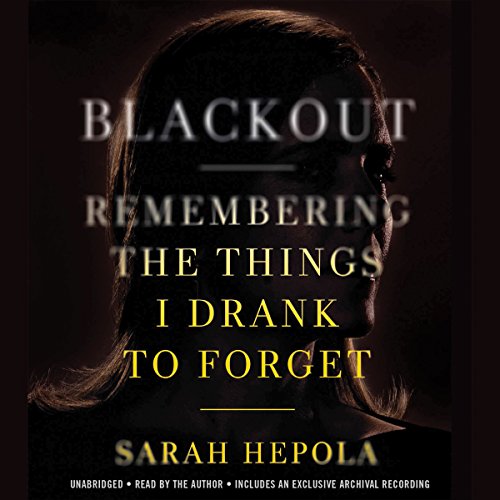
In this New York Times bestselling memoir writer Sarah Hepola masters the art of self-deprecating humor to describe the numerous and dangerous blackouts she experienced during her drinking career. Hepola had her first drink when she was just seven years old and following a bountiful drinking career in college, she develops a complex and addictive relationship with alcohol where she often drank to blackout levels. She accurately describes this as the lethal territory where you are so drunk that your brain stops recording memories – you may be walking and talking and doing things, but you will have no memory of them the next day. Hepola narrates honestly and with humor about a very serious topic, as well as recounting the struggles she had with food which she then used as a substitute in early sobriety. Readers will be grateful that she managed to generate enough material from her blackouts to create this compelling story for us to listen to.
Drink? The New Science of Alcohol + Your Health
By David Nutt
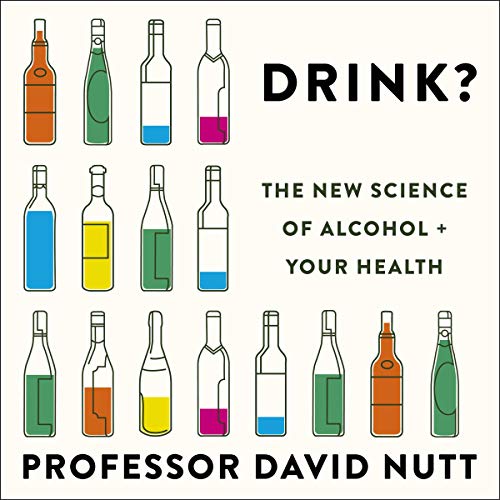
Much as the title suggests, Drink? is a scientific examination of the ways in which alcohol affects our bodies and health. British Professor David Nutt, who has a long career of researching the impacts of drugs and alcohol, provides a no-nonsense approach to what the long and short-term effects of alcohol are for drinkers on their body and mind. This includes the basics of what happens to our bodies when we have a drink and feel drunk, as well as the science behind dreaded hangovers. He makes complex science digestible and understandable and provides material for the listener to decide for themselves what kind of drinker they are, as well as the different effects that different alcoholic drinks have on us. Nutt’s approach does not promote sobriety in its entirety but instead offers readers valuable information about the impact of alcohol on their health so that they may make an informed decision about whether to drink for themselves.
Have you listened to these quit lit audiobooks? Do you have your own suggestions for audiobooks to help with recovery?
Please share your experiences in the comments section below.
